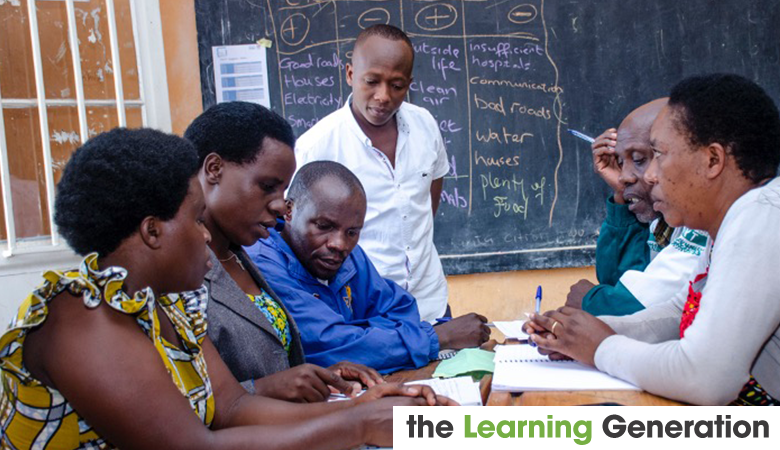
Challenge
To meet the growing demand for quality education, the world needs 44 million additional teachers by 2030, with 15 million of them in Sub-Saharan Africa alone. However, increasing the supply of teachers alone will not be enough. Teachers often work in isolation with little support and are expected to fulfill increasingly diverse roles to respond to wide-ranging learners’ needs. New approaches are needed.
The Education Workforce Initiative (EWI), led by the Learning Generation Initiative (formerly the Education Commission), is catalyzing efforts to support teachers and leverage the wider education workforce by drawing on the latest evidence and innovations to strengthen the education workforce, to build learning teams, and to transform education systems into learning systems.
Key Activities
EWI focuses on the following priorities to address education workforce challenges by generating new evidence, promoting innovation, and testing new approaches:
- Improving school and education system leadership
- Influencing the use of team-based approaches and a more diverse education workforce
- Improving the supply and quality of teaching for the most disadvantaged
Impact
- The Transforming the Education Workforce report sets out three visions to strengthen, diversify, and reimagine the education workforce. Its focus on the broader education workforce and team-based approaches have been recognized and taken up by the international community, including as a priority action in the Save Our Future White Paper, and the potential of learning teams have been referenced in the latest Smart Buys report.
- Worked closely with the Ghana Education Service and PwC Ghana to support the redesign of the Ghana Education Service at all levels to ensure a focus on learning, equity, and effectiveness. Currently serving as the research and learning partner on the implementation of the new design.
- Provided technical support and expertise on a range of education workforce issues in collaboration with the Teaching Service Commission, Fab Inc., EducAid, and Education Development Trust in Sierra Leone, including development of a national school leader professional development framework; use of GIS for more equitable teacher deployment; and research on teacher preferences, movement, and retention.
- Prototyped a High Touch High Tech personalized learning approach to grade 7 maths in Vietnam in partnership with Arizona State University, which resulted in students making two years of progress in their learning within one semester.
- Identified policy recommendations, developed action plans, and catalyzed political will to promote adaptive, inclusive, engaging, and playful pedagogies in collaboration with country partners in Ghana, Kenya, and Rwanda.
Learn More
DURATION
FUNDED BY
PARTNERS
Aga Khan Foundation, A Partner in Education, EdTech Hub, EducAid, Education Development Trust, Fab Inc.,
Ghana Education Service and Ministry of Education, Open University, Sierra Leone Teaching Service Commission, Sierra Leone Ministry of Basic and Senior Secondary Education, UNESCO International Institute for Educational Planning, University of Cape Coast, Institute for Education Planning and Administration, Wellspring Foundation